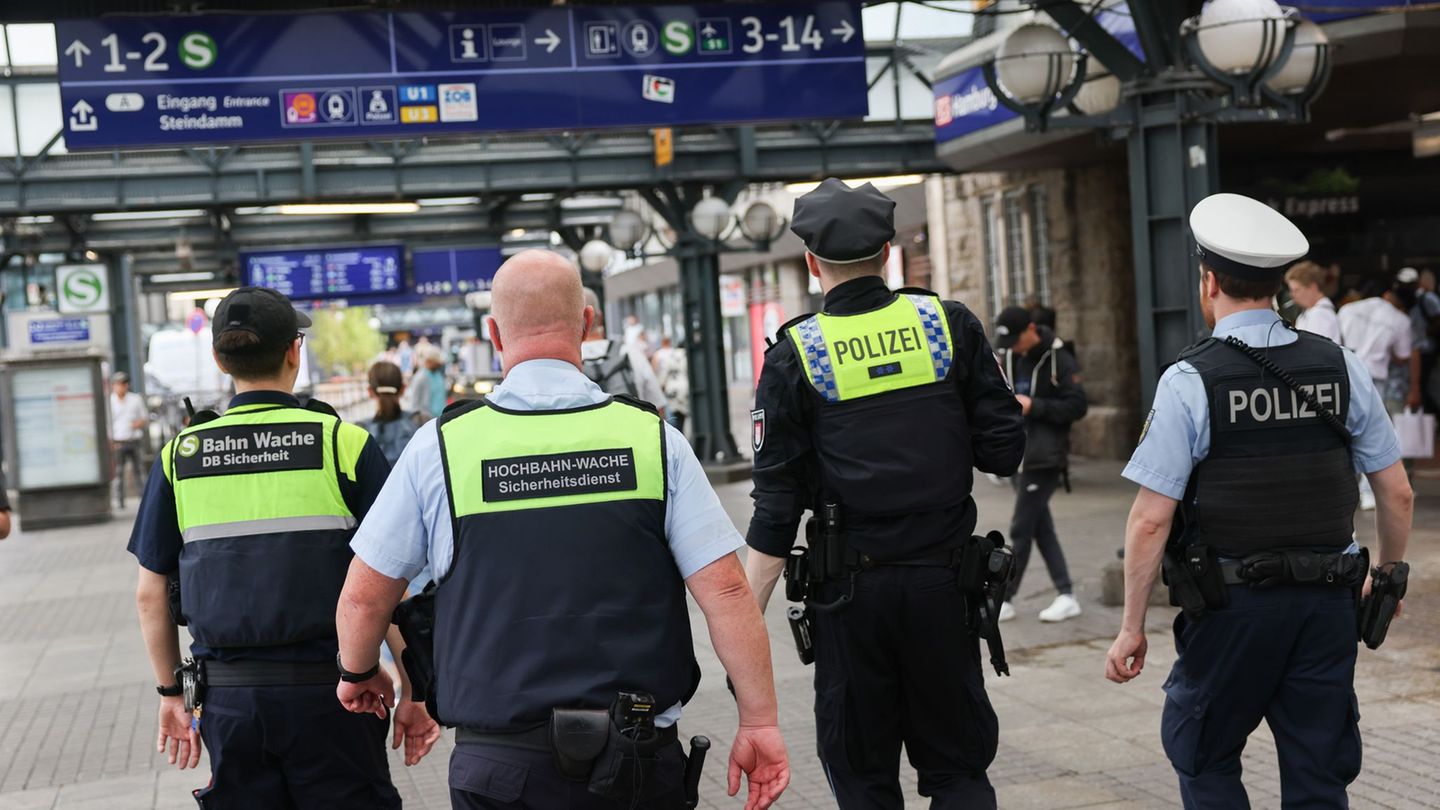First annual report
Police officer goes to complain about racial profiling
Copy the current link
Add to the memorial list
Citizens who complain about discrimination are part of the everyday life of the federal police officer. His annual report is also about the sometimes not optimal working conditions of police officers.
With inputs, information and suggestions, 279 citizens have contacted the federal police officer, Uli Grötsch. According to his annual report, the entry of the entries was the accusation of discrimination or racial profiling at border crossings, airports and in train stations, often combined with the accusation of racism. Racial profiling means suspicion -independent checks solely on the basis of the physical appearance. In 19 cases, the representative initiated an investigation procedure.
There were also individual complaints about the behavior of employed private security companies that check the luggage and travelers at airports on behalf of the federal police. As Grötsch reports, a discussion between a transperson and employees of the service provider escalated in one case, so that the federal police had to be called. Instead of arguing about whether this person is scanned by a man or woman in the security check, the situation could have been defused from the perspective of Grötsch with the question of who they wanted to be scanned from.
The police officer pointed out that there are now often joint strips of the federal police at stations with the DB’s employees “because often the volume of violence at train stations has developed so negatively”.
Some dozen entries from police business
Grötsch, who is responsible for the interests of the Federal Police, the Federal Criminal Police Office (BKA) and the police at the German Bundestag, also reached 78 entries from the federal police authorities between July 1, 2024 and June 30, 2025.
Among other things, it was about the behavior of superiors, allegations of sexual harassment as well as questions about assessments and promotions. Grötsch, his office started in March last year. It is his first annual report.
Weather protection and sanitary facilities
According to the report on the infrastructure, progress has recently been made at the border control positions. In some places, however, it still lacks protection against rain and sun. Sanitary facilities can only be reached over major distances.
The structural condition of the premises used by the federal police in various train stations is not good. “The low point is the state of the federal police station in Fulda in Hesse in the reporting period,” the report says. Grötsch describes the structural condition of the BKA’s exercise center in Fürstenwalde in Brandenburg. Employees would have pointed out considerable structural defects when visiting the BKA location in Meckenheim in North Rhine-Westphalia.
Clarity for the police officers in rejections
The rejects of asylum seekers at the German Land borders after the decision of the Berlin Administrative Court, the federal police officer, Uli Grötsch, considers it wrong. “It doesn’t go together for me,” says Grötsch. Federal Interior Minister Alexander Dobrindt (CSU) is responsible for “finding a regulation that is flawless under European law”, preferably in consultation with neighboring countries like Poland.
At the beginning of June, the Berlin Administrative Court found that the rejection of three Somalians during a border control at the Frankfurt (Oder) train station was illegal. Without a clarification as to which EU state is responsible for an asylum application by the person concerned, they should not be rejected, it said.
After the decision, Dobrindt spoke of a “individual case judgment”. His ministry said that the rejections of asylum seekers at the land borders would continue.
Grötsch pointed out the high number of overtime at the federal police, also as a result of the intensified border controls. He does not question that the controls contribute to a reduction in irregular migration to Germany.
In January 2024, the Bundestag created the legal basis for the office of police officer with voices of the traffic light coalition and the left. It serves police officers and citizens as a contact point to display misconduct or possible structural grievances.
“Despite resistance from the Union, which was based on unfounded distrust, the police officer strengthened confidence in the police and laid important foundations for reforms,” said Irene Mihalic, the parliamentary managing director of the Greens parliamentary group. From the point of view of her parliamentary group, the police officer should also be responsible for customs in the future.
dpa
Source: Stern
I have been working in the news industry for over 6 years, first as a reporter and now as an editor. I have covered politics extensively, and my work has appeared in major newspapers and online news outlets around the world. In addition to my writing, I also contribute regularly to 24 Hours World.




